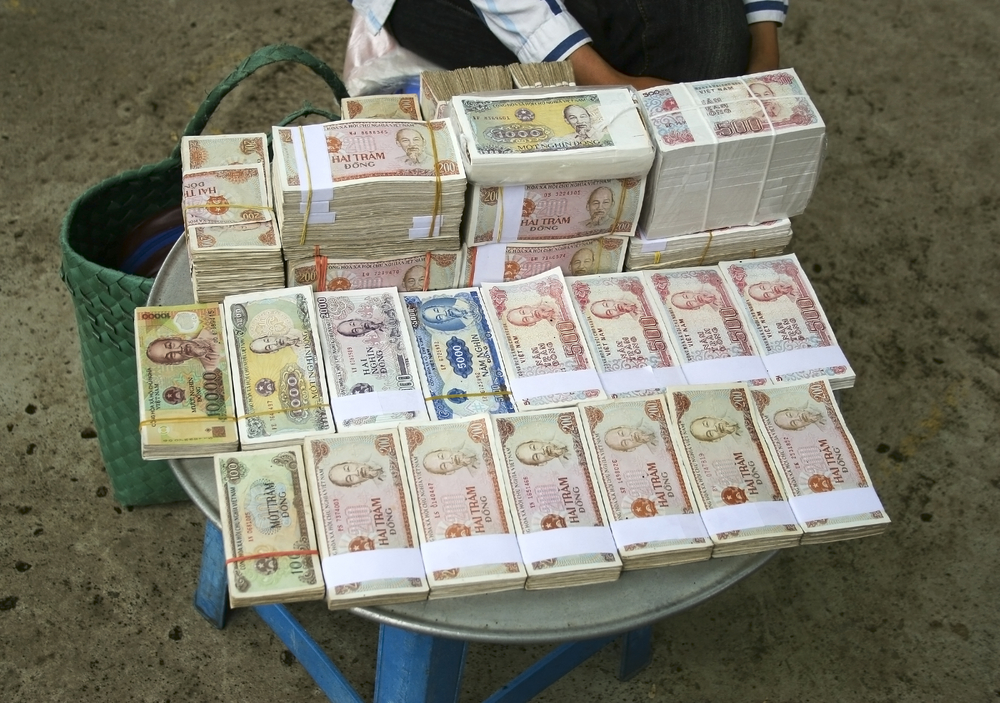Vietnam Hoping Function Follows Form
In architecture, there is a dictum that ‘form follows function’. The architect decides a building’s use and then designs the building for those purposes. In Vietnam’s process of economic reforms, the reverse is often the case — ‘function follows form’....
The Shanghai Stock Market’s Wild Ride
The Shanghai stock market has had a rough start to the New Year. Bourses are down and trading was halted on its opening day after the market plunged, triggering the new circuit-breaker mechanism designed to limit volatility. It looks as...
The First Day of Trading does not a Year Make
Chinese shares and the yuan stabilized with the apparent help of the government's guiding hand, but global markets are still on the defensive. The euro extended yesterday's decline through the $1.08 level. The next immediate technical objective is near $1.0730. ...
The Specter of Complacency in Singapore
Singapore’s ruling party, the People’s Action Party (PAP), enters 2016 enjoying the comfort of a magnificent electoral victory in the 2015 general elections. In that election — the first since the death of patriarch Lee Kuan Yew — the PAP...
Japan’s Abe Affirms ‘Comfort Women’ Measures with South Korea
On 28 December, the foreign ministers of Japan and South Korea announced that the issue of comfort woman was ‘resolved finally and irreversibly’. Japanese Prime Minister Shinzo Abe expressed anew ‘his most sincere apologies and remorse to all the women...
The Reality of Social Change in Singapore
Last year was a year of retrospection and affirmation for Singapore. Marking the country’s 50th year of independence, 2015 saw a yearlong series of state-sponsored events and projects to celebrate the nation’s achievements. The effect was a carefully choreographed campaign...
Sri Lankans are Looking for Results from Their Government
Tough economic issues are getting harder to ignore for Sri Lanka’s new political leaders. Sri Lanka witnessed a change of government in early 2015 with the surprise defeat of the political strongman and war-winning president Mahinda Rajapaksa. Tough economic issues...
Negative Sentiment Carryover in Emerging Markets
Meet the New Year - same as the old year. EM starts 2016 on a weak footing, with negative sentiment carrying over from 2015. The global backdrop remains poor, with the Fed likely to continue its tightening cycle with another...
Market Drivers doing the Driving
The start of a new calendar year does not necessarily mean the rise of new market drivers. In fact, the key issues investors face at the start of 2016 are the same that dominated Q4 2015. These issues center around...
Despite Slowing Growth, India’s Modi is Optimistic
On the back of expanding global trade and buoyant exports, the Indian economy managed to grow at more than 9 percent annually between 2005–6 and 2007–8. However, following the global financial crisis, and subsequent sluggish world output and trade trends,...
South Korea is Facing Western Socioeconomic Ills
South Korea has been celebrated for the twin successes of its rapid economic development and democratisation. However, the political and economic progress that has taken place has increasingly come under challenge in recent years. The worsening gap between the rich...
Philippine President Aquino’s Hits and Misses
President Benigno Aquino III completes his six-year term much less popular than when he began it. His approval rating has dropped from a high of 79 percent at the beginning of his term to 54 percent as of September 2015....
Concern Grows Over Indonesia’s Recent Growth Slowdown
Put in a comparative, historical perspective, Indonesia’s economic growth performance has been relatively strong. Yet the recent slowdown in growth is a cause for concern. It is estimated that the Indonesian economy will only grow 4.7 percent in 2015 and...
South Korea Wants It Easy to be Green
Recent headlines on the South Korean economy announced that the country’s GDP grew faster during July–September 2015 than it had over the past five years. However, there is a more important story beyond the fluctuations in regularly reported macroeconomic data...
It’s Time for Sri Lanka to Focus on the Economy
The direction of Sri Lanka’s post-civil war socio-political and economic development took a pivotal turn in 2015 with the election of a new president in January and, seven months later, a new government to parliament. The direction of Sri Lanka’s...


















